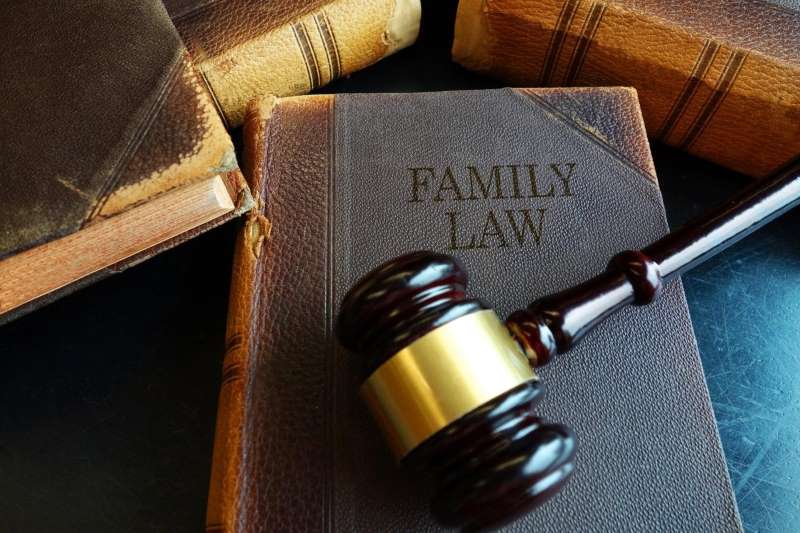
It was founded that in 29% of child custody cases, the custody agreement is made without the help of an outside party. If you’ve gone through a separation and are now moving forward with a custody hearing, you must understand the different types of child custody.
Knowing what your legal options are will help you to remain prepared ahead of the final decision. And knowing your options can help you and your former spouse reach an agreement before things get messy.
Remember, no matter what agreement you come to, it’s all in the best interest of your child. Continue scrolling through our guide for details about your custody options and rights.
Get a Child Custody Lawyer
One of the first things that you need to do before proceeding with a child custody case is to hire a lawyer. The lawyer will help instruct you on how to proceed with the legal process and get the best outcome for you and your child.
Before your first meeting, you need to make a list of questions to ask a lawyer about child custody. Having these questions written ahead of time will ensure that you get all of the answers you need to help you make the best decision.
The lawyer and they’re legal team will also be the representation you need to fight for your custody rights.
Joint Custody
Joint custody is when both parents share custody of their children. They will decide on a schedule where the children spend half of their time in one place and the other half of the time with the other parent.
Both parents will have an equal say when it comes to the decisions made for the child as it pertains to their wellbeing. There are different types of joint custody that you need to understand, including joint physical and legal, joint legal, and joint physical custody.
The downside to having joint custody is the child will frequently move between houses making their life seem unsettled. In severe cases, one parent may be unwilling to compromise with the other parent putting the child in a confusing and challenging predicament.
As you and your former spouse come to a joint custody agreement, you must find common ground, or you risk have the schedule set by the courts. And they will always make the decision that best suits the child rather than what works for the parents.
Some helpful advice that we recommend is to keep records of everything done for your children, especially financially. This way, if your former partner decides to take you to court or claims that they spend the majority of the money needed to take care of the children, you’ve got the documentation necessary to prove otherwise.
Legal Custody
When a parent has legal custody of the child, they will make all of the decisions when it comes to their children. This includes decisions that pertain to medical and health situations, where the child will attend school and more.
If you’ve got joint legal custody of your children, this means that all decisions that will be made need to be discussed with your former partner first. If you make decisions without consulting them, you may find yourself back in court because of it.
While it might not be ideal to discuss every decision, you make with your former spouse when it comes to your children and your parenting relationship it will help make your life run smoother than if you all waste time arguing over necessary decisions.
Sole Custody
As the custodial parent of a child in terms of sole custody, you’ve got 100% custody of your children. In most cases, to be given sole custody of your child, the other parent has to be proven unfit to raise children.
If the parent has a history of abuse or problems with alcohol and substance abuse, then the court system will see to remove the child from that environment as soon as possible. You must be aware that as the custodial parent, the noncustodial parent could still ask for visitation rights depending on conditions set by the court.
If they have substance abuse issues, the courts may require them to submit to drug testing before each visit and take substance abuse classes to help get their life back on track. It may take a while, but once the noncustodial parent can prove themselves to be fit again, their visitation rights may increase.
This will take quite some time before more rights are given to the parent that has several issues.
Grandparents Custody
Depending on the situation, there are times when a child’s grandparents will be awarded custody of the child. Especially in cases where both parents have been deemed unfit to take care of their children.
Usually, when children have been subjected to abuse or neglect of any type at the hands of their parents, they will be removed from the home and custody awarded to the grandparents or next of kin that’s willing to take them in.
There are times when living with their grandparents is temporary until the parents can prove that they’re able to take care of their children, which will take time, and an improved and documented track record.
Different Types of Child Custody Explained
There are many different types of child custody that you need to take into consideration before moving forward with your custody case. Knowing the options you have will help you and your former spouse to make the best decisions for your children. Remember, it’s about your kids and not what’s best for you.
We know this is a challenging time, but we hope after you’ve finished this article, your better equipped to get through it. Our site offers various legal, business, and technology articles that are worth checking out.











